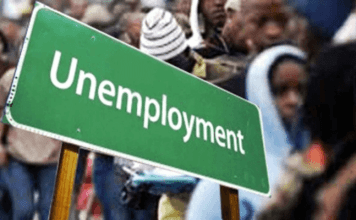Members of organised private sector have stressed that harsh economic policies from the government have worsened the country’s unemployment rate.
They lament that if the poor economic policies are not quickly addressed, more businesses would fold up and it would exacerbate unemployment.
Adewale-Smatt Oyerinde, the President of Nigeria Employers Consultative Association that the consequences of insufficient economic policies and a hostile business climate would force a lot of businesses to cut their workforce to reduce cost.
He commenced that the government implement best rate to increase the business environment and support production within the private sector.
Oyerinde said, “Since the beginning of 2023, the government has been instituting policies unfavourable to the operations of the private sector, which happens to be the largest source of employment in the country.”
According to the National Bureau of Statistics in its Labour Force Survey, in the third quarter of 2023, the country’s unemployment rate rose to five per cent from 4.2 per cent in the preceding quarter.
The labour force association rate, which measures the proportion of the working-age residents actively involved in the labour market, decrease to 79.5 per cent in Q3 from 80.4 per cent in Q2.
According to the National Bureau of Statistics’ updated methodology, Nigeria, home to over 200 million people, experienced a decrease in unemployment from 5.3 per cent in Q4 2022 to 4.1 per cent in Q1 2023.
The NECA boss asserted that several policies were hinding businesses, including the removal of fuel subsidies, the adoption of a floating foreign exchange rate, the currency redesign initiative by the Central Bank of Nigeria, the imposition of multiple taxes and heightened excise duties on imported goods.
Oyerinde said, other government policies that have been affecting businesses from the upward adjustment of foreign exchange rates for import clearance by the Nigeria Customs Service, and the recent prohibition of alcoholic beverages in sachets and PET bottles smaller than 200ml.
The Manufacturers Association of Nigeria said recently, the ban on the sale of alcoholic drinks by the National Agency for Food and Drug Administration will cost the Nigerian economy 500,000 jobs.
Segun Ajayi-Kadir, the Director -General of Manufacturers Association of Nigeria (MAN) noted that the body was concerned about the recent ban imposed on Spirit drink in sachets and PET bottles less than 200ml.
Also, the Distillers and Blenders Association of Nigeria lamented that the ban was going to damage local manufacturing and negatively affect the economy, as well as the social well-being of the citizens.
According to the latest Manufacturers CEOs Confidence Index report, Manufacturers’ employment rate would dip to 48.8 points in the first quarter of 2024.
The new figure represents a downward spiral from the 49.2 points acquin the preceding quarter.
